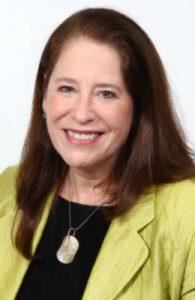by Dr. Robin McGee, CKN Editor
Recently, I joined the Canadian Association of Psychosocial Oncology or CAPO
 Dr. Deborah McLeod
Dr. Deborah McLeod
An ongoing research project which tackles care delivery is the “Therapeutic Practices for Distress Management (TPDM) Project.” The inspiration of Dr. Deborah McLeod and a number of other researchers, this study examines the impact of psychosocial training on the practice of front-line oncology nurses and their work systems. (Full disclosure: I am a big fan of Dr. McLeod. As described in The Cancer Olympics, she co-led a support group of which I was a grateful participant. Also, I serve as one of the patient representatives on the project.)
What are the “four horsemen” of the cancer experience? Every patient knows them: pain, fatigue, anxiety, and depression. Using her expertise as a nurse and Ph.D.-level training in counselling, Dr. McLeod developed online training modules for each topic. Nearly 70 oncology nurses in 5 major cancer centres across Canada spent 56 online hours aimed at developing their skill in truly listening and responding to cancer patients. Compared to a pre-training baseline, participating nurses had greater knowledge and confidence in their skills; as well, they showed observable increases in appropriate responsiveness during clinical roleplays.
The project also addressed the reality that nurses work within differing structures. Whereas some settings pair nurses with oncologists, some settings have nurses and doctors working apart. Settings vary tremendously in their hierarchies, operational flow, and on the importance they place on psychosocial issues. So for each centre, an Implementation Committee was formed comprised of key stakeholders (including patients) that examined the unique systemic factors at play. Not surprisingly, working cultures are significant determinants of the degree of psychosocial help patients get from front-line oncology nurses.
But what about the patient voice? “As an educator, I have been involved in seeking out and using patient narratives for learning forever,” says Dr. McLeod. To foster empathy and engagement, stories and dramatizations of patient struggles were used to reach the learners. One such story was “Simon’s romantic evening” in which a prostate cancer patient recounts his anguish in needing to use injections to address erectile dysfunction. “I had a nurse who had worked with prostate patients for 10 years,” Dr. McLeod recalls, “who responded to that narrative with ‘I had no idea what these men were going through!’” Opening the eyes of oncology nurses to the totality of the cancer experience helped hook them into learning, and into responsive care.
What are the key issues that CAPO ought to advocate for? Dr. McLeod, a longstanding member, hopes that CAPO will continue to develop and maintain their standards and guidelines of care. Along with advocating patient support by specialists like psychologists, she hopes they will continue to advocate for psychosocial support by generalists. “One of the biggest things,” she recommends, “CAPO ought to advocate for patient engagement and psychosocial care at every level of the health care team.”
What does all this mean for patients? There are clinicians out there who understand that the distress of cancer is as potent as the disease itself. They want to hear about distress, and teach others in the system how to address it. Any patient or caregiver can join CAPO to help this vision, and to support projects such as Dr. McLeod’s.
.jpg) Dr. Robin McGee (The Cancer Olympics, Twitter @TCOrobin), is a Registered Clinical Psychologist, mother, wife, educator and friend. Living in Nova Scotia, she has worked in health and education settings for over 25 years. Since entering remission, she has been very active in advocacy, mentorship, and fundraising on behalf of cancer patients. In particular, she has been involved in provincial, national, and international initiatives aimed at improving standards of cancer care. In 2015, she was awarded the Canadian Cancer Society’s highest honour, the National Medal of Courage. Robin was recently named the 2016 recipient of the Sovereign’s Medal for Volunteers from the Governor General of Canada. Her book The Cancer Olympics has won five literary awards, and was recently listedamong the best 55 self-published books of 2015 by Kirkus reviews. Proceeds of sales go to cancer support programs. The Cancer Olympics is McGee’s first – and hopefully her last – memoir about her cancer experiences.
Dr. Robin McGee (The Cancer Olympics, Twitter @TCOrobin), is a Registered Clinical Psychologist, mother, wife, educator and friend. Living in Nova Scotia, she has worked in health and education settings for over 25 years. Since entering remission, she has been very active in advocacy, mentorship, and fundraising on behalf of cancer patients. In particular, she has been involved in provincial, national, and international initiatives aimed at improving standards of cancer care. In 2015, she was awarded the Canadian Cancer Society’s highest honour, the National Medal of Courage. Robin was recently named the 2016 recipient of the Sovereign’s Medal for Volunteers from the Governor General of Canada. Her book The Cancer Olympics has won five literary awards, and was recently listedamong the best 55 self-published books of 2015 by Kirkus reviews. Proceeds of sales go to cancer support programs. The Cancer Olympics is McGee’s first – and hopefully her last – memoir about her cancer experiences.